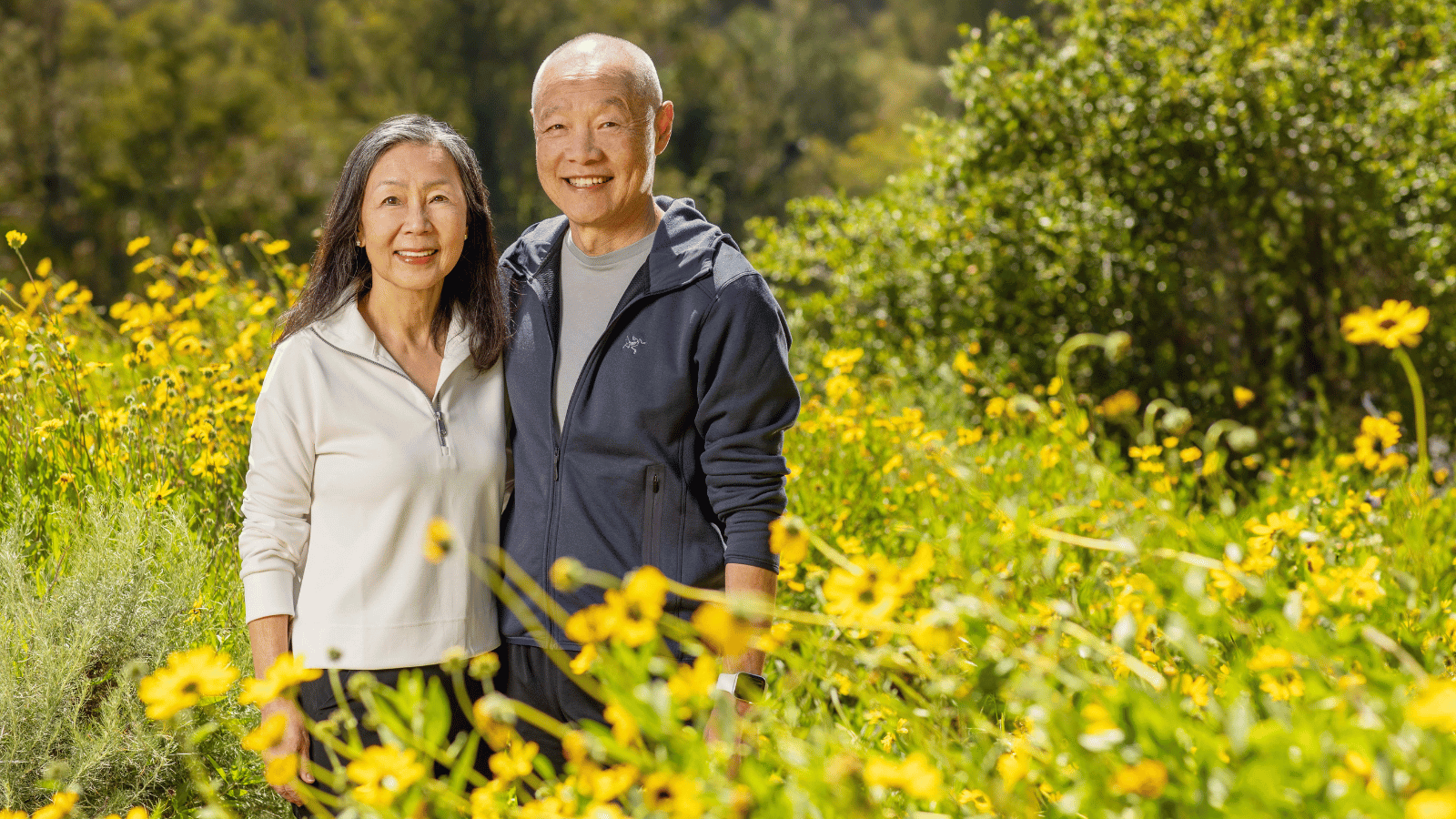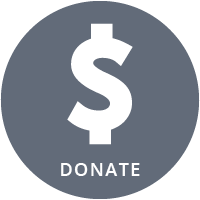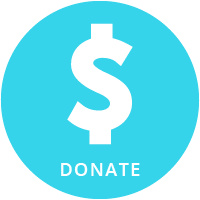
On fuchsias, fly-fishing and fighting the Shotokan way
Written by Diane Krieger | Photographed by Michael Neveux
Ask about his lifelong pursuit of martial arts, and David Chan, MD, will say it’s all about “the process.” The esteemed Torrance Memorial Medical Center breast oncologist has a black belt in Shotokan karate and has also trained in Krav Maga self-defense. Yet he wouldn’t dream of walking down a dark alley to test his mettle.
“If you have to use this in the street, you’ve basically failed at situational awareness and de-escalation,” he says. “You’ve made every mistake.”
So why, then, has he devoted 50 years to learning and practicing martial arts? “Because it’s really stimulating,” he says. “It’s great physical exercise, and it’s very mentally challenging.”
He brings the same mindful karma to fly-fishing. Every year he and his wife, Susan, go to a remote spot in the American Northwest or Canada. With a field guide, they stand waist-deep in chilly water, casting lines over rippling currents.
“We always go to protected waters,” he explains of the activity that never yields fresh catch for supper. Instead, it’s about the process. “The flies are barbless. It’s all catch and release by law. Last summer, I caught a 30-pound salmon. We took a picture, released it and it kept going.”
At 71, Dr. Chan can look back on a lifetime of important professional achievements, including dozens of clinical trials that have advanced the development of lifesaving cancer therapies. He has spearheaded several top-notch cancer programs, and he has offered compassionate, expert care to thousands of frightened patients.
This, too, is all about the process. In an age of assembly-line medicine, Dr. Chan is present in the moment. As a result, he says, “I’m always notoriously late.” He typically sees 16 to 18 patients a day. By late afternoon, he’s at least an hour behind schedule—sometimes two hours—because he flat-out refuses to rush.
“My philosophy is: If a patient comes in with a significant problem, that’s their time. They’ve got my undivided attention. I’m there in the room until everything’s taken care of.”
And those other patients in the waiting room? “They’re incredibly understanding because they know when it’s their turn, I’ll be there for them,” he says.
Though he was born in Taipei, Dr. Chan has spent all his life in California. His father died when he was only 3 years old. Soon thereafter, his mother, Seckyue Mary, emigrated to the United States with her four young children. Here she met and married Jack Fulbeck, a PhD student at USC.
Their blended family moved to West Covina in the 1960s, when Fulbeck became an English professor at Cal Poly Pomona. A prolific poet, his prize-winning verse traveled into orbit on the Space Shuttle Challenger, where it was read by a crew member in 1985.
Dr. Chan was educated almost entirely at UCLA. After earning his bachelor’s and medical degrees, he stayed in Westwood through internship and residency. He and his wife had met as undergraduates. “She lived two doors down from me in the co-ed dorm,” he recalls.
A retired speech and language specialist, Susan worked for the Los Angeles Unified School District for many years. Their son, Spencer, 33, is a software developer living in the Bay Area.
Medicine has consumed Dr. Chan’s professional life. He completed a fellowship at Stanford in 1985 and has worked at Torrance Memorial Medical Center ever since. Among his many accomplishments is authoring the acclaimed 2006 handbook Breast Cancer: Real Questions/Real Answers. His lengthy curriculum vitae boasts 45 academic papers, most recently a Phase 2 clinical drug trial published last September in the prestigious journal The Lancet Oncology.
His greatest passion is Torrance Memorial’s breast cancer program, which he has directed since 2018. He calls it “the most satisfying thing I’ve done in my career.”
None of it would have been possible, he acknowledges, “without Priscilla Hunt and others who have made enormous donations to build the Hunt Cancer Center, which has consolidated and strengthened cancer care in the South Bay,” says Dr. Chan, who is a longtime donor and Ambassador member. “We’re so incredibly grateful.”
Dr. Chan undertakes each pursuit mindfully and with humble tenacity—including his fuchsias. He was introduced to the delicate, droopy, pink-and-purple flowers by a dear patient. Ida Drapkin was internationally known in horticultural circles and the founder of South Coast Botanic Garden’s celebrated fuchsia collection.
“I was caring for her over many years,” Dr. Chan recalls. “She would bring me clippings or plants in pots. Then one day she said, ‘I’ve got a new fuchsia I hybridized for you, and I’m going to call it Dr. David Chan.’ It’s actually registered.”
The floral Dr. Chan has “a peachy complexion with flecks of orange and red,” according to a May 2000 Los Angeles Times homage to Drapkin’s myriad fanciful hybridizations.
Under his patient’s tutelage, Dr. Chan took up the art of growing and hybridizing fuchsias. “It takes a lot of work because they aren’t very sturdy and they’re very hard to grow,” he says. “Especially the Dr. David Chan. It has giant flowers and very weak stems.”
He doesn’t grow any other flowers or plants—only fuchsias. He grows all different varieties, in the ground and cascading from elevated pots on his patio. No surprise: “With fuchsias, too, it’s kind of a process,” Dr. Chan says. “Different fuchsias require different amounts of shade and sun. Some are very sun tolerant. Some are very sun averse. You need to figure out what each plant needs.”
Sort of like cancer patients—each one is unique and the focus of Dr. Chan’s undivided attention.
The Changing Face of Cancer Care
Cancer care isn’t what it used to be. “When I first started practice, my group had maybe 35 or 40 patients in the hospital at any given moment. Today it’s a handful,” says breast oncologist David Chan, MD, who explains that oncology is primarily an outpatient practice now. “We’re very good at doing the treatments without the need for hospitalization.”
Dr. Chan weighs in on changes he’s seen over the course of 39 years of practice, and what the future holds.
Will progress in cancer care someday put oncologists out of business?
I don’t think so. What we’re seeing is cancer changing into a chronic illness. The analogy I use is high blood pressure or diabetes. The treatments don’t cure the disease, but it can be managed with medications and people can live long lives. The rate of cancer patient research and new drugs is nothing short of astonishing.
Is chemotherapy on the way out?
Targeted treatments have made chemotherapy far less of a focus. We now have so many subtypes of cancer, each with its own molecular signature. Pharma and biotech are developing specific targeted treatments for each one. Also, cancer treatment is far more individualized.
What’s new in breast cancer therapy?
The prognosis of breast cancer is rapidly improving. A lot of this is due to early, accurate diagnosis. That, along with all the newer treatments, turns what once were terrible breast situations into very curable ones. Where patients in the past would have had a life expectancy of three or five years, they’re now living 15 or even 20 years with their cancer on treatment.
What is special about cancer care at Torrance Memorial?
We’re one of a very few community cancer programs doing high-volume clinical trials, working hand-in-glove with academic cancer centers. We have among the highest number of patients enrolled in the Los Angeles area year to year. It means our patients have access to new drug therapies long before they become FDA approved.
The Hunt Cancer Institute is really a cancer center without walls. Five tumor boards, specializing in different tumor types, review each patient’s case and develop a unique plan of action. We have a team of skillful and compassionate surgeons, radiation and medical oncologists, interventional radiologists, pulmonologists and pathologists, who make it all work seamlessly.
Half the oncology patients we see are breast cancer-related, and our breast program is accredited through the National Accreditation Program for Breast Centers. It’s a very difficult application process and the highest certification a breast program can receive. We were selected by Medicare as one of the top 100 Oncology Care Mode (OCM) programs nationally. OCM tracks our results, and the analytics show our breast cancer patients have a 40% to 60% better survival rate than average. It’s an incredible achievement. •






